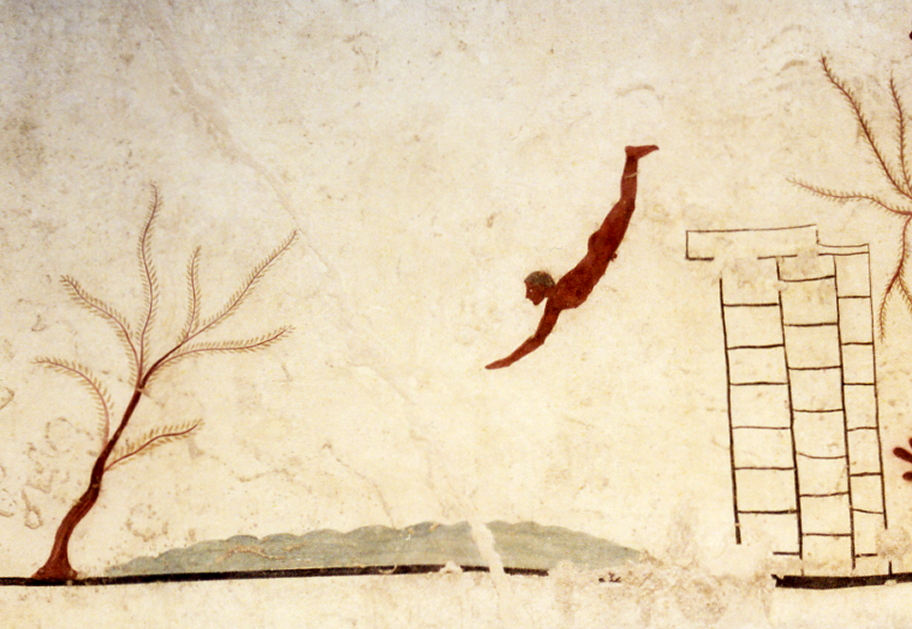I MET and spoke with Mathilde Krim, who died on January 15th at age 91, some time in the mid-1980s, at a party to which I’d been invited at her Upper East Side home. It was amid the worst years of the AIDS crisis, when friends in their twenties were dying all around me, when male colleagues at the publishing house where I worked were suddenly on extended leave, then permanent leave. When I met her that evening, Dr. Krim had already cofounded amfAR, the American Foundation for AIDS Research, and was a well-known figure on TV, perhaps the most visible medical advocate for finding a cure. Her numerous accomplishments were detailed in many obituaries after she died; what follows is a more personal reflection.
 Any young gay man in New York in those years really did feel like he was being stalked—that he might at any moment get that cold that didn’t go away, or pass out on the stairway up to his fifth-floor walk-up. It came on that suddenly. My close friend, the writer Johnny Wallace, younger than I, not even knowing he was infected with HIV, suddenly went down on Pennsylvania Avenue during a march in Washington, DC, and never really got up again. Even spotting a bit of dandruff on the shoulders of your coat could set off a panic (it was yet another indication, seemingly so banal, that something was amiss). For my friend Michael Conlon, my very first friend in New York, a thirty-something professor of English, that was one of his first signs, and it was only a matter of time before others appeared.
Any young gay man in New York in those years really did feel like he was being stalked—that he might at any moment get that cold that didn’t go away, or pass out on the stairway up to his fifth-floor walk-up. It came on that suddenly. My close friend, the writer Johnny Wallace, younger than I, not even knowing he was infected with HIV, suddenly went down on Pennsylvania Avenue during a march in Washington, DC, and never really got up again. Even spotting a bit of dandruff on the shoulders of your coat could set off a panic (it was yet another indication, seemingly so banal, that something was amiss). For my friend Michael Conlon, my very first friend in New York, a thirty-something professor of English, that was one of his first signs, and it was only a matter of time before others appeared.
At that time, a lovely and supportive gay couple I knew, David Jannes and Louis Ufland, ran a successful PR firm that represented and promoted notable charitable causes and the social figures involved with them. Mathilde Krim, the great scientist who was both an AIDS researcher and an activist, was among them. As my unofficial mentors, David and Louis often invited me to parties that their clients hosted, both as a way to draw me into the glamorous swirl of New York life and to encourage me to write about these people and their causes in the magazines that I wrote for.
Krim lived in a vast Beaux-Arts townhouse in the East Sixties, the grandest residence I had yet seen in New York, and was married to Arthur Krim, a Hollywood producer and active member of the Democratic Party. David and Louis greeted me in the marble-floored parlor where guests were assembled. They led me to a circle of people that included Mrs. Anwar Sadat, the then president of the University of Maryland, the actor Tony Randall, Mayor Ed Koch, and other figures, including the hostess, Mathilde Krim.
Much to my embarrassment, David and Louis interrupted the group to announce my full name, as if I were somebody important enough to stop the conversation. When greeting Mrs. Krim, I told her that she was one of my heroes—and I meant it. She was then a regular figure on TV, much in the news about her work on AIDS, discussing how she and others, notably Elizabeth Taylor, were bringing awareness of the disease to the American public and showing compassion for its victims, unlike the US president, Ronald Reagan, who had yet to utter the word AIDS in public. I ventured to ask her a direct question: “Will there ever be a cure?” She took my hand in hers and answered, “Science will solve this.”
I recited that phrase for years, not knowing fully what it meant. I mulled it over as if it were a kind of Delphic pronouncement. Did it mean that science would find the cure soon, or so many years in the future that gay men would all be dead by then? Did it mean that the virus would run its course, felling as many as it could before burning itself out? I ultimately interpreted the pronouncement as an optimistic one, choosing to believe that science would master the virus sooner rather than later. I intoned Krim’s phrase to myself and others until the antiretroviral drugs started to appear in 1996, transforming HIV infection from a death sentence to a manageable condition. Science has kind of solved it.
As a magazine writer and editor, I have been able to meet and interview many famous people. But I always cite Mathilde Krim as the most illustrious of them all. It is not often that you get to meet your hero in life. She, as a key figure in science, helped to allay my own sorrow and fear, and that of a generation of gay men.
David Masello is a frequent contributor to The Gay & Lesbian Review.
You are viewing this
"Here's My Story"
essay for free.
After your third essay,
subscribe to The G&LR
(either print or digital edition)
for unlimited access
to all articles on our website.






